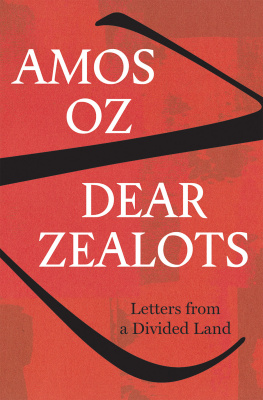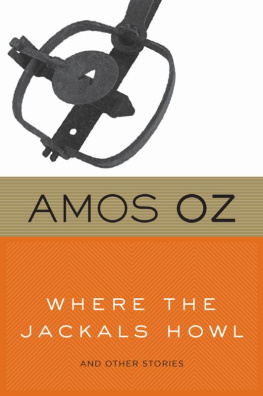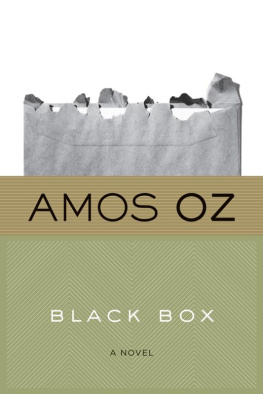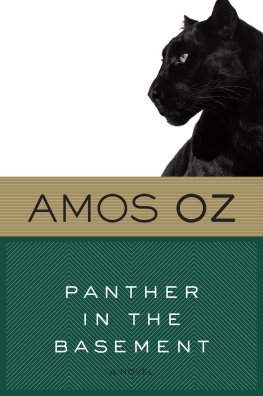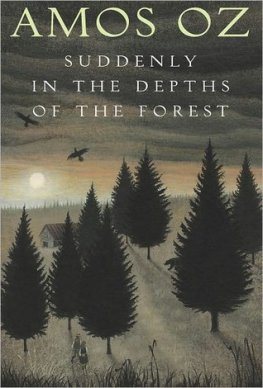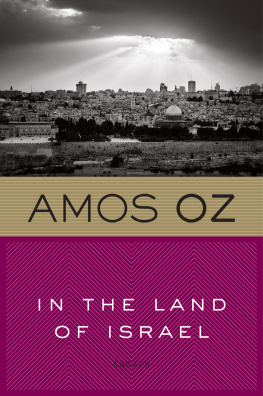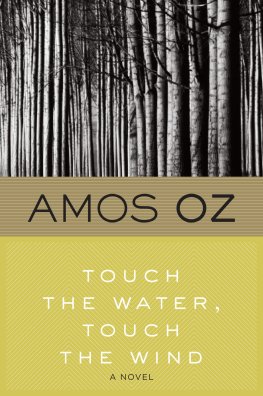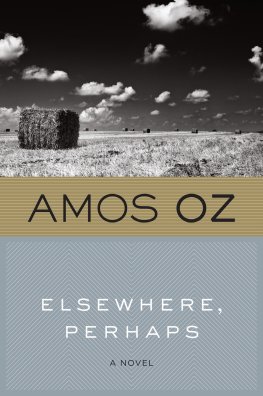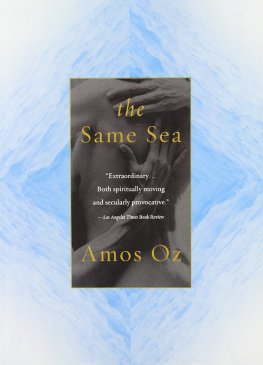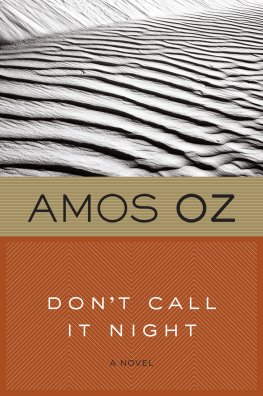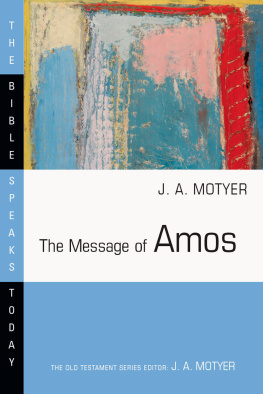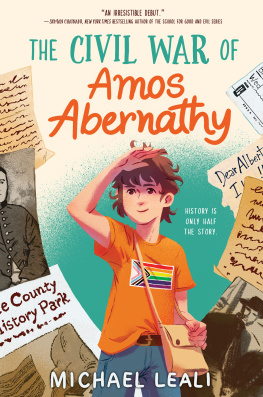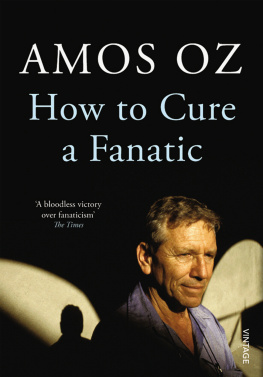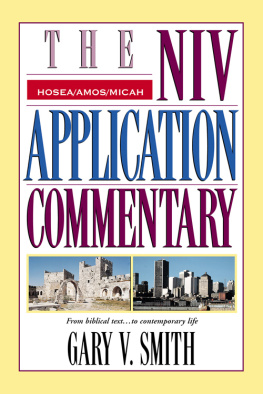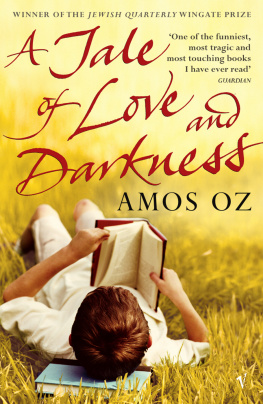Amos Oz - A Tale of Love and Darkness
Here you can read online Amos Oz - A Tale of Love and Darkness full text of the book (entire story) in english for free. Download pdf and epub, get meaning, cover and reviews about this ebook. year: 2004, publisher: Harcourt, genre: History. Description of the work, (preface) as well as reviews are available. Best literature library LitArk.com created for fans of good reading and offers a wide selection of genres:
Romance novel
Science fiction
Adventure
Detective
Science
History
Home and family
Prose
Art
Politics
Computer
Non-fiction
Religion
Business
Children
Humor
Choose a favorite category and find really read worthwhile books. Enjoy immersion in the world of imagination, feel the emotions of the characters or learn something new for yourself, make an fascinating discovery.
- Book:A Tale of Love and Darkness
- Author:
- Publisher:Harcourt
- Genre:
- Year:2004
- Rating:4 / 5
- Favourites:Add to favourites
- Your mark:
- 80
- 1
- 2
- 3
- 4
- 5
A Tale of Love and Darkness: summary, description and annotation
We offer to read an annotation, description, summary or preface (depends on what the author of the book "A Tale of Love and Darkness" wrote himself). If you haven't found the necessary information about the book — write in the comments, we will try to find it.
A Tale of Love and Darkness — read online for free the complete book (whole text) full work
Below is the text of the book, divided by pages. System saving the place of the last page read, allows you to conveniently read the book "A Tale of Love and Darkness" online for free, without having to search again every time where you left off. Put a bookmark, and you can go to the page where you finished reading at any time.
Font size:
Interval:
Bookmark:
Copyright 2003 by Amos Oz and Keter Publishing House Ltd.
Translation copyright 2004 by Nicholas de Lange
All rights reserved. No part of this publication may be reproduced or transmitted in any form or by any means, electronic or mechanical, including photocopy, recording, or any information storage and retrieval system, without permission in writing from the publisher.
For information about permission to reproduce selections from this book, write to or to Permissions, Houghton Mifflin Harcourt Publishing Company, 3 Park Avenue, 19th Floor, New York, New York 10016.
www.hmhco.com
This is a translation of Sipour Al Ahava Vehoshekh.
First published in the UK by Chatto & Windus.
The Library of Congress has cataloged the print edition as follows:
Oz, Amos.
[Sipur al ahavah ve-hoshekh. English]
A tale of love and darkness/Amos Oz;
translated from the Hebrew by Nicholas de Lange.
p. cm.
1. Oz, AmosChildhood and youth. 2. Authors, IsraeliBiography. I. Title.
PJ5054.O9Z47313 2004
892.436dc22 2004007302
ISBN -13: 978-0151-00878-0 ISBN -10: 0-15-100878-7
ISBN -13: 978-0156-03252-0 (pbk.) ISBN -10: 0-15-603252-x (pbk.)
e ISBN 978-0-547-54552-3
v9.1018
I WAS BORN and bred in a tiny, low-ceilinged ground-floor apartment. My parents slept on a sofa bed that filled their room almost from wall to wall when it was opened up each evening. Early every morning they used to shut away this bed deep into itself, hide the bedclothes in the chest underneath, turn the mattress over, press it all tight shut, and conceal the whole under a light gray cover, then scatter a few embroidered oriental cushions on top, so that all evidence of their nights sleep disappeared. in this way their bedroom also served as study, library, dining room, and living room.
Opposite this room was my little green room, half taken up with a big-bellied wardrobe. A narrow, low passage, dark and slightly curved, like an escape tunnel from a prison, linked the little kitchenette and toilet to these two small rooms. A lightbulb imprisoned in an iron cage cast a gloomy half-light on this passage even during the daytime. At the front both rooms had just a single window, guarded by metal blinds, squinting to catch a glimpse of the view to the east but seeing only a dusty cypress tree and a low wall of roughly dressed stones. Through a tiny opening high up in their back walls the kitchenette and toilet peered out into a little prison yard surrounded by high walls and paved with concrete, where a pale geranium planted in a rusty olive can was gradually dying for want of a single ray of sunlight. On the sills of these tiny openings we always kept jars of pickles and a stubborn cactus in a cracked vase that served as a flowerpot.
It was actually a basement apartment, as the ground floor of the building had been hollowed out of the rocky hillside. This hill was our next-door neighbor, a heavy, introverted, silent neighbor, an old, sad hill with the regular habits of a bachelor, a drowsy, still wintry hill, which never scraped the furniture or entertained guests, never made a noise or disturbed us, but through the walls there seeped constantly toward us, like a faint yet persistent musty smell, the cold, dark silence and dampness of this melancholy neighbor.
Consequently through the summer there was always a hint of winter in our home.
Visitors would say: its always so pleasant here in a heat wave, so cool and fresh, really chilly, but how do you manage in the winter? Dont the walls let in the damp? Dont you find it depressing?
Books filled our home. My father could read sixteen or seventeen languages and could speak eleven (all with a Russian accent). My mother spoke four or five languages and read seven or eight. They conversed in Russian or Polish when they did not want me to understand. (Which was most of the time. When my mother referred to a stallion in Hebrew in my hearing, my father rebuked her furiously in Russian: Shto s toboi?! Vidish malchik ryadom s nami!Whats the matter with you? You can see the boys right here!) Out of cultural considerations they mostly read books in German or English, and presumably they dreamed in Yiddish. But the only language they taught me was Hebrew. Maybe they feared that a knowledge of languages would expose me too to the blandishments of Europe, that wonderful, murderous continent.
On my parents scale of values, the more Western something was, the more cultured it was considered. For all that Tolstoy and Dostoevsky were dear to their Russian souls, I suspect that Germanydespite Hitlerseemed to them more cultured than Russia or Poland, and France more so than Germany. England stood even higher on their scale than France. As for America, there they were not so sure: after all, it was a country where people shot at Indians, held up mail trains, chased gold, and hunted girls.
Europe for them was a forbidden promised land, a yearned-for landscape of belfries and squares paved with ancient flagstones, of trams and bridges and church spires, remote villages, spa towns, forests, and snow-covered meadows.
Words like cottage, meadow, or goose girl excited and seduced me all through my childhood. They had the sensual aroma of a genuine, cozy world, far from the dusty tin roofs, the urban wasteland of scrap iron and thistles, the parched hillsides of our Jerusalem suffocating under the weight of white-hot summer. It was enough for me to whisper to myself meadow, and at once I could hear the lowing of cows with little bells tied around their necks, and the burbling of brooks. Closing my eyes, I could see the barefoot goose girl, whose sexiness brought me to tears before I knew about anything.
As the years passed I became aware that Jerusalem, under British rule in the 1920s, 1930s, and 1940s, must be a fascinatingly cultured city. It had big businessmen, musicians, scholars, and writers: Martin Buber, Greshom Scholem, S. Y. Agnon, and a host of other eminent academics and artists. Sometimes as we walked down Ben Yehuda Street or Ben Mai-mon Avenue, my father would whisper to me: Look, there is a scholar with a worldwide reputation. I did not know what he meant. I thought that having a worldwide reputation was somehow connected with having weak legs, because the person in question was often an elderly man who felt his way with a stick and stumbled as he walked along, and wore a heavy woolen suit even in summer.
The Jerusalem my parents looked up to lay far from the area where we lived: it was in leafy Rehavia with its gardens and its strains of piano music, it was in three or four cafs with gilded chandeliers on the Jaffa Road or Ben Yehuda Street, in the halls of the YMCA or the King David Hotel, where culture-seeking Jews and Arabs mixed with cultivated Englishmen with perfect manners, where dreamy, long-necked ladies floated in evening dresses, on the arms of gentlemen in dark suits, where broad-minded Britons dined with cultured Jews or educated Arabs, where there were recitals, balls, literary evenings, ths dansants, and exquisite, artistic conversations. Or perhaps such a Jerusalem, with its chandeliers and ths dansants, existed only in the dreams of the librarians, schoolteachers, clerks, and bookbinders who lived in Kerem Avra-ham. At any rate, it didnt exist where we were. Kerem Avraham, the area where we lived, belonged to Chekhov.
Years later, when I read Chekhov (in Hebrew translation), I was convinced he was one of us: Uncle Vanya lived right upstairs from us, Doctor samoylenko bent over me and examined me with his broad, strong hands when I had a fever and once diphtheria, Laevsky with his perpetual migraine was my mothers second cousin, and we used to go and listen to Trigorin at Saturday matinees in the Beit Haam Auditorium.
Font size:
Interval:
Bookmark:
Similar books «A Tale of Love and Darkness»
Look at similar books to A Tale of Love and Darkness. We have selected literature similar in name and meaning in the hope of providing readers with more options to find new, interesting, not yet read works.
Discussion, reviews of the book A Tale of Love and Darkness and just readers' own opinions. Leave your comments, write what you think about the work, its meaning or the main characters. Specify what exactly you liked and what you didn't like, and why you think so.

